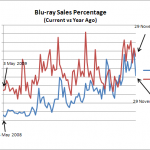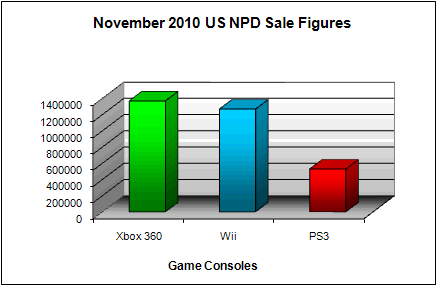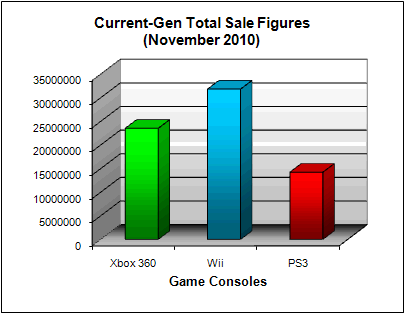Welcome to this lovely Boxing Day, St Stephen’s Day, or simply day after Christmas, edition of the WNR, which is also the last of this year. As expected, the eggnog and alcohol filled week meant that the news was pretty light, so hopefully we’ll get through this one and it will be relatively painless.
 In copyright news, the repercussions of the Cyber Monday Homeland Security/ICE raid is still being felt, and there’s more evidence to suggest that it was the RIAA/MPAA that were calling the shots in this one, and HS/ICE basically did whatever these industry groups told them to do.
In copyright news, the repercussions of the Cyber Monday Homeland Security/ICE raid is still being felt, and there’s more evidence to suggest that it was the RIAA/MPAA that were calling the shots in this one, and HS/ICE basically did whatever these industry groups told them to do.

dajaz1.com closed down by Homeland Security, and just like OnSmash.com, it was a website many in the industry supported, but one which the RIAA hated
The New York Times has started to investigate the websites that were closed, and at least one other website was like OnSmash.com, which only posted so called infringing material after being provided said material, via leaks, by artists and even the labels themselves. It seems that the RIAA, for some reason, resented this type of websites, and were intent to use this opportunity to have these websites closed down, even though there are plenty of higher profile targets. Perhaps these blogs bypassed the more mainstream promotional routes that RIAA members had financial interests in, or that these kind of promotional tactics are being deployed by smaller, independent labels outside of the reach of the RIAA, and they wanted to deal a blow to their competitors, but it certainly seems that the reasons had very little to do with piracy.
But in order for Homeland Security and ICE to be used in this way by the RIAA, as a private security force, there has to be some level of incompetence or corruption going on. Ars technica has done further investigation into the agent in charge of this operation, as well as the affidavits filed for the case, and incompetence, as opposed to a vast conspiracy, seems more likely. The agent in charge, Andrew T. Reynolds, does not even have 2 years worth of experience the field of IP crime, and before that, he was only a “student trainee”. And the affidavits themselves were filled with phrases such as “according to the MPAA”, and some of the statements in relation to the cost of piracy are almost word for word reproductions of statements made in the past by the MPAA. For example, this is what Special Agent Reynolds said in the affidavit:
“Based on my participation in the investigation, I have learned that there is a ‘domino effect’ to online piracy… Domestic industries lose approximately $25.6 billion a year in revenue to piracy, the domestic economy loses nearly 375,000 jobs either directly or indirectly related to online piracy, and American workers lose more than $16 billion in annual earnings as result of copyright infringement.”
And this is what former MPAA Dan Glickman said in 2009:
“Copyright industries in the US lose $25.6 billion a year in revenue to piracy, the U.S. economy loses nearly 375,000 jobs either directly or indirectly related to the copyright industry, and American workers lose more than $16 billion in annual earnings”
It seems pretty clear the RIAA and MPAA were pulling the strings behind this investigation, and that Special Agent Reynolds’ inexperience made him extremely easy to manipulate.

MasterCard has announced itself the new Internet Police, helping the RIAA/MPAA in stopping online piracy
If it wasn’t bad enough that the RIAA and MPAA now seems to control the government, subverting due process, other companies are coming out to do the same, including MasterCard. After their recent controversial stance against Wikileaks, they’re on a roll by announcing that they will now help the RIAA and MPAA stop online piracy by stopping financial services for websites suspected of providing piracy. This is genius! Bypass the government and the courts entirely, and big corporations can now determine guilt and innocence, with zero appeals process unless you want to take MasterCard to civil court. And immediately, the RIAA has demanded that MasterCard take action against Megaupload. Megaupload, like any cyber locker websites, allows users to upload and share any files. Of course, some, and maybe quite a bit of the files being shared are of an infringing nature (Megaupload say they host over a billion legitimate files though), but like YouTube, Megaupload do have a takedown policy. Of course, if the RIAA were to take Megaupload to court, then the outcome will be very unpredictable, as similar cases against Rapidshare has yielded mixed results. And so when faced with uncertainty in the courts, why not just bypass it completely!
Megaupload has vowed to fight on, and questioned the circumvention of due process as an attack on democracy itself. “Will it be them (MasterCard), rather than elected governments, who decide what’s right and what’s wrong”, asked Bonnie Lam of Megaupload. The fact is that Megaupload does have a mechanism for removing pirated content, but because it takes too much work for the RIAA/MPAA to track every illegally uploaded file, they’re bypassing the system completely, the very system that they demanded via the DMCA legislation. And you can see where this will lead to eventually. Imagine an ISP that refuses to implement the RIAA/MPAA’s plan for three-strikes, and then MasterCard swoops in and cuts off support for the ISP, claiming that the ISP obviously supports piracy. Or if Hollywood gets annoyed at Redbox for renting things to cheaply, why not just get MasterCard to swoop in again. And so on. It’s corporate intimidation, nothing more, and all because they want to stop the phantom piracy plague, but don’t want to actually do the hard work, or any work.
And it all comes down to the “$25.6 billion a year” that MPAA’s Dan Glickman referred to, and Special Agent Reynolds copy/pasted into “his” affidavit. Except there isn’t $25.6 billion, and there never was. It’s taking the suspected number of pirated downloads, inflate this number by a few factors, and then times the full retail costs of said content, and arriving at this fantasy figure. In other words, it’s saying that if piracy is stopped completely, that the group people (in the US only) who have otherwise been spending a total of $0 per year will now suddenly start to spend $25.6 billion per year, despite near 20% underemployment in the US. According to the FBI, 794,616 cars were stolen in 2009, with the average cost of the cars being at $6,505, or a combined total of $5.2 billion. I don’t see the auto industry claiming this $5.2 billion as lost sales, and how ridiculously would it be if they did try.
This brings up to the list of the most pirated movies of 2010. By my own calculations, the top 10 movie torrents resulted in 92.5 million downloads, and at the price of $20 per movie, that’s $1.85 billion right there. Of course, looking at the actual box office of these movies, you come to some strange conclusions. Avatar was top, as expected, but there was also room in the top 10 for the likes of Green Zone, which did poorly at the box office. Now, there can be several conclusions from this. The MPAA conclusion would be that piracy helped to reduce Green Zone’s box office, and so that’s $154.6 million in lost ticket sales in the US alone, despite the fact that Green Zone only recorded $95 million in *worldwide* ticket receipts. The sensible conclusion may be that a lot of those who downloaded this movie belong to the “wouldn’t pay for it, but would probably watch it if it was free” category, and that some of those that downloaded, and actually liked it, may have gone on to purchase the DVD or Blu-ray. And despite having being downloaded 16 million times, Avatar was still the best selling movie of all time. In fact, Avatar did almost three times as much business as The Lord of the Rings: Return of the King back in 2003, the third most popular movie of all time. Given that movie piracy is now a lot worse now than back in 2003, and adjusting for inflation, is piracy really a $25.6 billion dollar problem in the US alone? So Avatar should have done, what, six times as much business as the Oscar winning RotK? Avatar wasn’t *that* good!
Moving on to DRM, and again, Sony is making DRM headlines for the wrong reason. A new Sony DVD DRM appears to lock up DVD players to the point where it comes difficult to even eject the damn disc (so you can throw it at something in frustration). The new DRM appears on the Salt DVD. Incidentally, Salt was the 10th most downloaded movie of 2010, with 6.7 million downloads. Looks like this new DRM worked really well in stopping piracy. Now only if they can make a disc that won’t play at all, on any player, then maybe the piracy problem will be solved once and for all.

In HD/3D news, the big news this week was the announced Blu-ray sales figures for the week ending 12th December, which is now officially the best week ever for Blu-ray, thanks largely to Inception. Of course, these stats are more estimates than actual sell-through numbers, but still, this all sounds very reasonable as the previous record was also set around this time, last year.
Of course, we then see a bunch of news articles about the rise of Blu-ray, and the fall of DVD. Which is true. Blu-ray sales, for the week ending 12th December, rose by 35.37%, with Blu-ray market share up nearly 54%. DVD sales, on the other hand, dropped by more than $85 millon for the same week. You see what I did there? I compared a very impressive percentage increase number for Blu-ray with an even more impressive (in a bad way) dollar figure for DVD. But when you add up the gain, and the loss, what do you get? That’s right, a $60.82 million dollar *loss* in combined DVD/Blu-ray revenue. Blu-ray may be surging, but it’s not surging fast enough at all, because 35% increase on $70 million is not enough to counter the 19% decrease on $442 million. Supposedly, downloads and streaming accounted for some of the DVD losses too.
And with reports that Wal-Mart was selling the Blu-ray+DVD combo version of Inception at only a single dollar over the 2-disc DVD-only version of the same movie, it’s not surprising why people are choosing the Blu-ray+DVD version over the DVD-only version. As a Blu-ray early adopter, I’m pretty much only buying movies on Blu-ray these days. One reason for this is that Blu-ray offers the chance to buy the best version of the movie available, whereas DVD represent buying into an obsolete format in terms of quality. But the main reason is that price wise, there’s almost nothing between DVD and Blu-ray these days, and in fact, the Blu-ray version is often cheaper. It’s almost as if Blu-ray has become the “budget” choice, or at least the better value choice, and so it’s not surprising to see Blu-ray sales increasing. It may come as a surprise to some in the entertainment industry, but lower price equals better sales (and less piracy as a result, I suspect).
![]()
Which brings us to gaming, and the annual Steam Holiday Sales. If publishers ever wanted prove that lower prices equals more sales equals greater revenue, then the stats provided by Valve (operators of Steam) should have publishers changing their sales tactics (except we know they won’t).

Steam's sales produce remarkable results, evidence that cheaper games will earn more for publishers, and also help to reduce piracy
Valve has figures that show when games are discounted by 75%, this lead to an amazing 1470% sales increase on average. That’s 15.7 times the sales, by charging a quarter of the previous price, which equates to almost 4 times as much in raw revenue. The extra buyers are coming no doubt from people who may have otherwise pirated the game, and so this is a very successful example of how the entertainment industry can convert piracy into dollars. Pirates are still gamers, movie or music lovers, and they do have money to spend. Just not as much as the industry wants to extract from them, but something is still better than nothing, and a lot of something adds up. With A-List games such as CoD: Black Ops or StarCraft II, they benefit less from price reductions (as people are buying them regardless), but the Steam figures show that even a 10% price reduction resulted in 35% increase in sales (or 1.2 times the revenue, compared to the unreduced price), so there exists a balance between pricing and piracy. But with average or even poor games, where people don’t feel justified in paying $60+, then a more aggressive price reduction could actually do wonders for revenue. People pay money for crap all the time (Slanket!), so it’s about finding the right price that people are willing to pay, even knowing the game is a bit crap.
And speaking of cheap games, The Humble Indie Bundle #2 event ended, with $1.8 million dollar worth of sales (or is that donations), beating the last event quite easily. On average, people paid $7.83 for the pack, even though they could have paid a lot less if they wanted to.
And the same thing applies to movies, and music. Price all movies at $5 on Blu-ray and $3 for permanent downloads, then see online piracy eliminated without the need to manipulate any Homeland Security and ICE agents, or heavens forbid, get MasterCard to swoop in.
And on that note, thus end WNR for 2010. Hope you’ve had a good year, and that the next one will be much better. An early Happy New Year to everyone.










